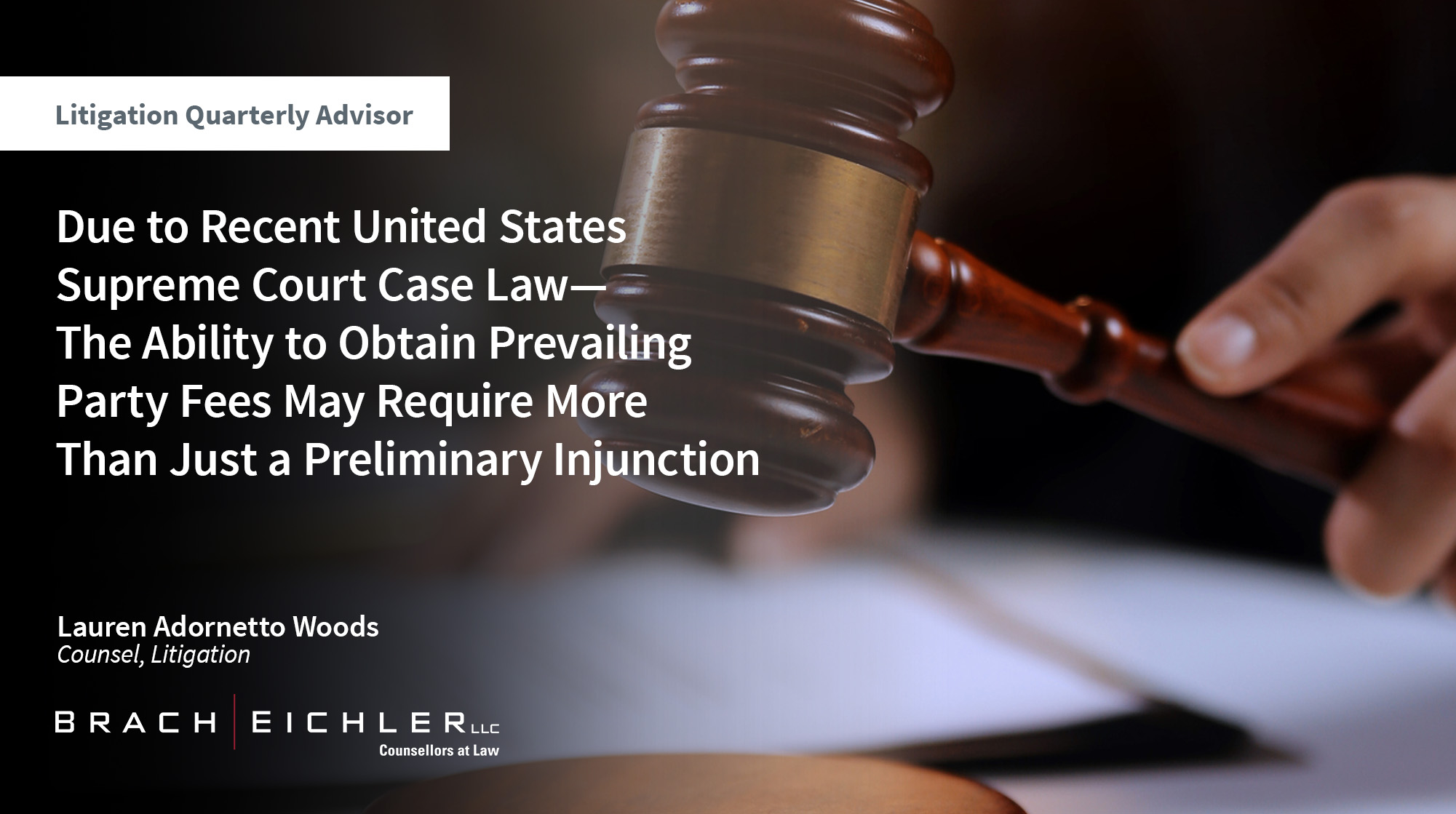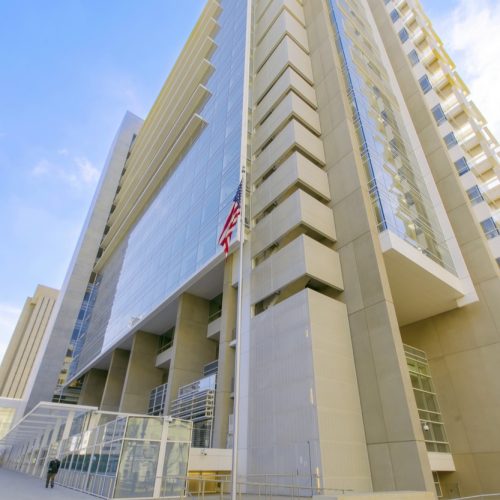DUE TO RECENT UNITED STATES SUPREME COURT CASE LAW—THE ABILITY TO OBTAIN PREVAILING PARTY FEES MAY REQUIRE MORE THAN JUST A PRELIMINARY INJUNCTION

10/1/2025
While New Jersey state courts have generally permitted an award of prevailing party attorney fees when only a preliminary injunction is obtained in 42 U.S.C. § 1983 cases, the ability to obtain the same relief in Third Circuit courts going forward may hinge on their interpretation and application of the United States Supreme Court’s decision in Lackey v. Stinnie, 145 S. Ct. 659, 667 (2025), which does not permit such relief. Specifically, on February 25, 2025, the United States Supreme Court held that a plaintiff in civil rights type case who brings a claim under 42 U.S.C. § 1983 and obtains a preliminary injunction is not considered a prevailing party and is not entitled to an award of attorney’s fees. The Court’s decision is particularly notable because the law being challenged was repealed by the Virginia General Assembly following the issuance of a preliminary injunction, thereby mooting the need for a permanent injunction. Even so, in denying an award of prevailing party fees, the United States Supreme Court concluded that “[b]ecause preliminary injunctions do not conclusively resolve the rights of parties on the merits, they do not confer prevailing party status.” Lackey v. Stinnie, 145 S. Ct. 659, 667 (2025). This decision represents an effort by the Supreme Court to develop a bright line test for the relief necessary to warrant an award of prevailing party fees in civil rights cases. Thus far, federal courts in various circuits have applied the Lackey decision, including Courts in the United States Court of Appeals for the Third Circuit.
Specifically, on May 9, 2025, in Augustyn v. Wall Township Board of Education, the United States Court of Appeals analyzed the Lackey decision in a case where the plaintiff won procedural relief at the outset of the case, but was ultimately unsuccessful. In doing so, the Court ultimately held that plaintiff was a prevailing party under the Individuals with Disabilities Education Act due to a procedural victory at summary judgment, irrespective of the plaintiff’s lack of success during later proceedings before an Administrative Law Judge. Augustyn v. Wall Township Board of Education, 139 F. 4th 252, 258-59 (3rd Cir. 2005). And while Augustyn did not involve the issuance of a preliminary injunction, the Third Circuit’s analysis of Lackey could provide a preview for how other federal courts in the Third Circuit will apply the United States Supreme Court’s bright-line test. For example, the Augustyn Court used language in the Lackey decision to analyze the concept of transient relief as compared to relief that constituted an enduring or permanent change at any point in the case, and ultimately concluded that a change in the legal relationship between the parties and permanent procedural relief at an earlier state of the proceeding would confer prevailing party status. By distinguishing Lackey and emphasizing circumstances where procedural relief could constitute lasting relief, the Court’s comments in the Augustyn may guide other courts in the Third Circuit going forward. So far, the District of New Jersey has addressed the Lackey decision in three instances, but none have addressed the entitlement to attorney fees when the only relief awarded is a preliminary injunction.












